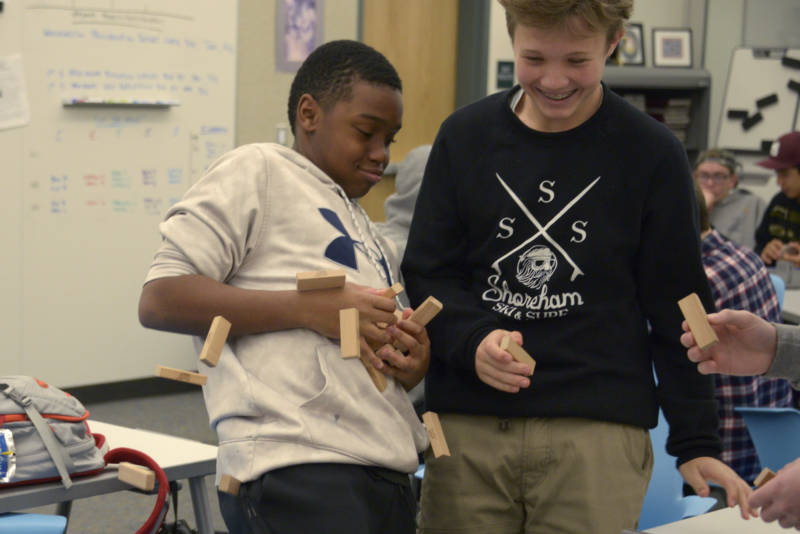Listen and subscribe to our podcast from your mobile device:
via Apple Podcasts | via Stitcher | via NPROne | via Spotify | Transcript
“Why is it that we don’t go outside as much as my parents did as children?” This sixth-grader’s question caught teacher Kath Irving off-guard. Inherent in the query is a recognition that times are different now and children notice it.
Boston College psychology professor Peter Gray marks the 1950s as the heyday of play in the United States. Back then, children played in the streets with other neighborhood kids, learning how to navigate the world by interacting with one another. This kind of play was unstructured and unsupervised by adults. Kids independently generated the activities and the rules. If someone broke the rules, kids determined the consequences. And without knowing it, they developed resilience, self-determination and problem-solving. Researchers have since connected skills gained in unsupervised play to positive mental health, social and emotional skills, agency, intrinsic motivation and creativity.
But this kind of free play may be a relic of the past. A confluence of family dynamics, economic and academic anxiety, fear of strangers, and vehicular traffic have put play at risk. University of Michigan researchers surveyed how families spent their time in 1981 and again in 1997. They observed a drop in the amount of free time kids have for play from 40 percent of a child’s day to 25 percent. By 2003, that amount of time dropped by another 4 percent. At the same time, the amount of time kids spend on academics has increased. This period is also marked by rising competition for college admissions, and the decline of middle-class opportunities in the United States.
“So childhood is turned from a time of freedom to a time of resume-building,” said Gray in his popular TEDx Talk.


